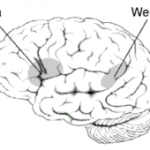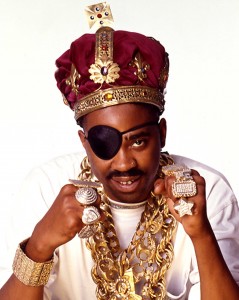Blog-3
now browsing by tag
Blog 3, Homework 4
Linguistics 101 Homework #4
*****due by 4pm, Oct. 21*****
Pragmatics
Make brief notes about:
p. 300, #5 – Deixis
a.yes, they & your (2)
b.no
c.no
d.yes, that & me and it
e.yes, another (another to what?) and now (what time does the sentence refer to)
f. no
g.yes, here (home, business hotel room?), Problem (hardware, program…?), and there (office, company, technician’s home?)
p. 301, #10 : Transcribe a sentence you hear
- What time are you working tomorrow? [ wʌt taɪm ɑr yu wɜr kɪŋ təˈmɔr oʊ ]
- because of the word “tomorrow” I was able to conclude the speaker wanted information about a specific day
- without the word “tomorrow” I could’ve interpreted it as any day of the week and without the word “working” I might not understood what the speaker was referring to.
p. 302, #14: Be Brief (avoid unnecessary prolixity)
Grices statement violated the maximum of quantity which states to either make your contribution as informative as is require or not to make your contribution more informative than is required. Her statement “be brief” was more than enough to get her point across.
p. 303, #18: Fouting Maxims
- He uses maxim of relevance.
ii. I think he uses this because he doesn’t want to express negative thoughts about the movie but still makes it clear that he didn’t enjoy them at all with the comments he makes.
p. 306, #33: Speech Acts
- This sentence is an assertion in speech act
ii. could either mean that its warm outside compared to how cold it is inside or that its a very warm day.
p. 307, #37: Speech Acts (Promise vs Threat)
The listener believes that the speaker wants something done.
The listener is able to do that thing.
The listener has no choice but to do it. (?)
It has not already been done (or it could be done again).
p. 308, #40: Performatives
- promise is a performance verb because it commits the speaker to an action
b. Suggest is not a performance
c. Convince Is a performance verb because it takes place as an action
d. Warn Is a performance verb because it calls for an action
e. Incite Is not a performance verb since the verb is not an action
f. Forbid Is a performance verb since the act of forbidding is an action
g. Inspire Is not a performance verb because the act of inspiring does not require an action
h.amuse is not a performance verb because its a state of being it does not request for any action/ “performance” by the listener
i.order is a performance verb because it demands an action
j. Provoke is a performance verb because it suggest an action
Language Variation
Do all of:
p. 444, #14 – Identify the level of linguistic structure where the variation occurs.
p. 445, #16 – Natural, Some, Non-Native
Make brief notes about:
p. 446, #17 – Vocabulary variation
- A
- A
- A
- A
- A
- B
- A
- A
- C
p. 447, #26 – Examples of variation
- Where I’m from (Carlsbad, CA) people in the higher class refer to adults as ‘Sir,’ or ‘Miss.’ The higher class refers to the youth of Carlsbad as “Son,” or “little miss.” The lower socioeconomic class refers to everyone as ‘man,’ as in “what’s up man?”
- Besides the differences of ‘miss’ and ‘sir’ for adults and ‘son’ or ‘little miss’ for gender differences, My community is made up of typically older white males of the upper middle class or above with moderate exceptions, so everyone is called by their ‘classical’ names.
- My community has two ways of describing old people, one being negative and one being positive. The negative way to describe an old person from my community is “old bag.” The positive way to describe an older person is “Old man” or if the speaker is creative, some people say “Wise man.”
- In Carlsbad CA, the majority of everyone is white, but when there is an ethical difference, the speech pattern is the same. typically you wouldn’t know if you’re speaking to a person of a Puerto Rican descendant or an African descendancy.
p. 450, #37 – Quizzes
Language & Culture
Make brief notes about:
p. 479, #1. politeness strategies, culturally determined. speaker roles, depending on who you are chatting with. Turn-taking rules, time you wait to begin speaking or respond after another person is finished speaking.
#2. it differs because social competence can come from the community of speakers you belong to, and linguistic competence can come from what we learn for example in school while growing up.
#3. would you like to go out to eat today? of course offer
would you help me with the homework today? sure, i will request
when is the party? at 8 pm question
hey, its nice to see you! nice to see you too greeting
when are you coming over? at 10 tomorrow question
p. 480, #15
p. 481, #19
p. 482, #28. a. etic: through text or over the phone , emic: you walked over to your friends house knocked on the door and said hello in person.
#2
Language Change
(Summer M)
Do most of each of:
p. 557, #10
In linguistic the term proto is used to point to a hypothesized relationship between languages. when it comes to proto Germanic, here we are saying that due to the similarities between specific languages, we can group these languages and place them under one genealogical family tree. since no language is uniform or isolated from other languages this hypothesized relationship is most likely true.
to examine this idea of the real existence of a proto germanic language, sometimes in the past, we have to look at the branches of that family tree and confirm that the similarities between these languages are real not just a mere coincidence.
let us compare languages such as German, Gothic, Danish, Swedish and English to each others.
German Gothic Danish Swedish English
Vater Fadar Fader Fader Father
Mutter Aithei Moder Mor (Moder) Mother
Fuss Fotu Fod Fot Foot
Drei Thri Tre Tre Three
Zehn Taihun Ti Tio Ten
looking at the table We can see that the similarities between those languages is not only specific to few words, but it extends to many words from the core vocabulary of these languages. As a result, we can say that all of these languages are related, which means that they all originally came from the same language. Although there is the word mother in Gother that seems to be different to the rest of the words in the other languages, we can conclude that this change was due to language change.
p. 557, #14
That is the result of sound change. At one point of time “Knife” and “Knight” was pronounced with the initial “K” sound, but due to change, which occurred slowly with time, the sound was deleted while the spelling stayed the same.
p. 558, #15
- here we seem to have a conditioned change due to “Dissimilation. if we look at the environment in which /k/ in Latin occurs, we can say that it happens when /k/ is (∅ _ /e,i/) while in Italian /t∫/ happens when (∅ _ /e,i/). As a result we can say that the change between the two languages happens under the following conditioned environment ( /k/ > /t∫/ / ∅ _ e,i)
p. 558, #16
- p>b
Proto-Quechua Tena
m _ i,u,a m _ i,u,a
the change is conditioned and the type of conditioned change is Assimilations
- tk>kt
Proto-Quechua Tena
u _ i,u,a u _ i,u,a
the change is conditioned and the type of conditioned change is Metathesis
- k>g
Proto-Quechua Tena
u _ l u _ l
n _ a,u n _ a,u
u _ j u _ j
the change is conditioned and the type of conditioned change is Assimilations
- t>d
Proto-Quechua Tena
n _ i,u n _ i,u
the change is conditioned and the type of conditioned change is Assimilations
p. 561, #22
Analogical process seems to be more prominent when it comes to Children language. For example, children seem to use plural form in an unusual way.
In Children language, words such as “Mans” which is used as a plural for the word “Man”, or the word “mouses” as the plural form for the word “mouse” seems to come natural to them.
But why is that the case when it comes to children language.
the reason behind this plural form, is the analogy children use in forming this plural. Children seem to mentally compare words such “Dog”>> Plural >> “Dogs” and “Cat” >> Plural >> “Cats” to form the plural of other “irregular” words. Mentally, children do this analogy when forming plurals:
Noun : Noun+s :: Man : Man+s
(Singular) (Plural) (Singular) (Plural)
Although this form is not accepted in English language, and children seem to correct themselves after getting more exposed to the language rules, this form still very common.
p. 561, #25
- Blues
It comes from the word “Blue” which indicates a feeling of sadness or melancholy.
the word started being used with the “blews” as the original form. the word then was changed into “blues”
1741 D. Garrick Let. 11 July (1963) I. 26, I am far from being quite well, tho not troubled wth ye Blews as I have been.
1807 Salmagundi 20 Mar. 116 In a fit of the blues.
1856 G. J. Whyte-Melville Kate Coventry viii. 89 The moat alone is enough to give one the ‘blues’.
1883 Harper’s Mag. Dec. 55 Come to me when you have the blues.
1900 F. L. Stanton Songs from Dixie Land 165 When a feller has the blues, ‘Taint no use to ask his views.
1960 New Statesman 27 Feb. 274/2 The post-election blues are beginning.
1995 Weekly World News 25 July 18/3 Repeating aloud familiar phrases such as..‘Every cloud has a silver lining’ will help banish your blues.
2003 Heat 29 Mar. 120/3 Taurus… Venus in Pisces this week, and that bodes well for any bulls who’ve recently been beset by the blues.
- brash
1400-50; (noun) late Middle English brass (c) he a slap, crash, perhaps blend of brok (e) ( Old English broc breach, fragment, sickness; akin to break ) and dasch smashing blow; see dash1; (adj.) in sense “brittle,” derivative of noun; in sense “hasty” by confusion with rash.
1824 W. Carr Horæ Momenta Cravenæ 24 What a brash raggald!
1837 R. M. Bird Nick of Woods I. viii. 120 Strannger thar’s as brash as a new hound in a b’ar fight.
1875 Lanc. Gloss. (E.D.S.) , Brash, hasty.
1889 ‘C. E. Craddock’ Despot Broomsedge Cove ii. 27 Ye notice how turrible brash Josiah Preen be,—can’t wait fur pa’son ter summons him.
1928 Punch 4 Apr. 374/2 He was going out in his brash street-suit with the flash tie.
1946 J. B. Priestley Bright Day viii. 248 That feeling of inevitable national superiority..which makes decent people seem brash and insensitive.
1948 W. Sansom South 114 The dogs of Italy do not chase cats like their brash northern brothers.
1950 R. Macdougall To Dorothy, a Son in Plays of Year IV. 418 The room has the lurid, brash appearance of an American cocktail bar.
1956 A. Wilson Anglo-Saxon Attitudes i. i. 7 This brash young American little knew what sore places he was invading with his clumsy fingers.
1958 Oxf. Mag. 1 May 390/2 One of those amiable institutions which survive in an alien age until they stand directly challenged by some brash newcomer.
- op-ed
The word is both clipped and blended together. the word came from (op)posite + (ed)itorial. The word is used to describe a page of a newspaper where varying opinions are expressed by columnists, commentators, etc
1931 J. W. Barrett World, Flesh, & Messrs. Pulitzer iv. 82 Swope developed..the idea of a distinctive ‘opposite editorial page’ consisting of two ‘columnists’, one book reviewer and the daily output of the dramatic critic. We called this the ‘op-ed’ for short.
1970 Time 10 Aug. 32 Pioneered by the Pulitzers in the old New York morning World, the Op-Ed provides a variety of viewpoints in dozens of major metropolitan dailies.
1989 Jrnl. Commerce (Nexis) 3 Jan. 71 As usual we hold out a warm welcome to our readers for op-eds, letters and suggestions on these issues.
1992 New Republic 6 Apr. 3/2 How former President Richard Nixon turned a stale op-ed into a front-page New York Times story.
1997 N.Y. Times 5 Dec. a22/6 Paul R. Gross (Op-Ed, Dec. 1) properly laments the ‘thanks, but no thanks’ attitude of the California commission.
2000 D. Brooks Bobos in Paradise 155 The young intellectual at this stage of her career gets to write the scathing memos and op-eds castigating people four decades her senior for their ignorance and cowardice.
- ramshackel
This word is a back-formation of the word “ramshacle” which describe a person or action that is unsteady, irregular, or disorderly.
1820 T. Creevey Jrnl. 5 Oct. in Creevey Papers (1903) I. xiii. 322 The most ramshackle fellow you ever saw.
1870 E. Peacock Ralf Skirlaugh II. 121 What ramshackle wark ha’ ye been after?
1880 ‘V. Lee’ Stud. 18th Cent. Italy ii. ii. 26 Fine talent..ruined..by a disorderly character, a ramshackle career.
1916 Times 29 Aug. 9/6 We are..not scholars enough..to realize how ramshackle a thing his poetry is even to his compatriots.
1955 P. Larkin Let. 31 May in Sel. Lett. (1992) 243 ‘Fred Karno’s army’ was a by-word for ramshackle improvisation, after Fred Karno, the comedian.
1998 Independent 9 Mar. ii. 1/1 Sampson captures their ramshackle operations in unsparing detail.
- Reaganomics
The word id a blend of the two words of “Reagan” and “economics”. This words is used to describe the economic policies of Reagan, associated esp. with the reduction of taxes and the promotion of unrestricted free-market activity.
1970 Oakland (Calif.) Tribune 16 July 7/5 The working people of California are paying dearly for lessons in Reaganomics that we don’t need.
1980 N.Y. Times 9 May a30/4 Reaganomics rests on an assumption that is dubious at best, and very probably false.
1984 Christian Sci. Monitor 2 Mar. 32/3 The whole purpose of Reaganomics was to return the country to a pre-Roosevelt period, a laissez faire, dog-eat-dog society.
2003 K. Hosseini Kite Runner (2004) xi. 110 Most of our neighbors in Fremont were..exactly the sort of blue-collar people who would soon suffocate under the pillow of Reaganomics pressed to their faces.
- recap
This word is formed by clipping the word “recapitulation”
1909 J. B. Griffith Shipping Department 30 The amount obtained by a recap of the cards at any time may not represent the correct total.
1929 Accounting Rev. 4 187/2 Manufacturing Cost Department will furnish the General Bookkeeping Department with Recap of Furnace Division Sales.
1955 F. Pohl & C. M. Kornbluth Space Merchants ii. 22 A brief recap of the extensive plans his lecture agent had made.
1959 Times Lit. Suppl. 2 Oct. 561/1 Comments and ‘recaps’, hints of tragedies to come or to be overcome, helped to give to oral narrative both atmosphere and shape.
1984 D. Lessing Diaries of Jane Somers i. 39 The trouble with a summing-up afterward, a recap, is that you leave out the grit and grind of a meeting.
2001 S. T. Asma Stuffed Animals & Pickled Heads vi. 205 But first here is a recap of the major types of religious resistance to Darwinism.
- electrocute
The word is an Etymology formed by both clipping and blending the two words “Electric” >> “Electro” and “Execute” >> “-cute”
1889 Trenton (New Jersey) Times 7 June 4/2 (heading) He wants to be ‘electrocuted’… An offer on the part of a man..to act as a victim..by testing the..new apparatus for executing by electricity.
1890 Congress. Rec. 8375/1 That the gentleman..should be ‘electrocuted’ by the Kemmler process recently adopted in the state of New York.
1903 W. D. Howells Lett. Home v 32, I could be sitting this moment with the transmitter at my mouth, and the receivers strapped to both ears, and looking as if I were just going to be electrocuted.
1945 N. Mitford Pursuit of Love xiii. 101, I bet the Scotsboro’ boys will be electrocuted in the end, if they don’t die of old age first, that is.
2001 Times (Nexis) 28 July, In Georgia I stood outside death row as the state electrocuted a man I thought was probably innocent.
- frazzel
This word is a barrowed French word “freüer” which mean to rub or come into collision. It is after changed to the word “frayer”. The word then was blended with the word “Fasel” to create “Frazle” which means to fray, or wear out. The word then changed again by addition to create “Frazzle”
a1825 R. Forby Vocab. E. Anglia (1830) , Frazle, to unravel or rend cloth. Frazlings, threads of cloth, torn or unravelled.
1896 J. C. Harris Sister Jane 344 He’s the genuine article, guaranteed not to rip in the seams or frazzle at the sleeves.
1912 J. London Son of Sun viii. 285 Loose ends of rope stood out stiffly horizontal, and, when a whipping gave, the loose end frazzled and blew away.
p. 562, #29
- Old New
Hardware Skype
Spam Debugger
File email
Switch Facebook
System Java
Mouse Oasis
Quad
VGA
Most of the words are new. the word was formed by different ways of word creations, such as coining, addition, deviations, blending, Eponyms…etc
This is due to the fact that computers and information technology are new sciences. Most of these words are intended to catch the hearing of the people in the community, or just to draw attention and give credit to the inventor of this new technology.
- Due to the use of most of the semantic word change types, many of the old words have been put to use. Most of these types had been chosen due to metaphorical relationship or due or general understanding change phenomena that accrued to that word.
p. 563, #33
Apparently < Dutch poppekak, lit. ‘doll’s excrement’ (apparently only in the phrase zo fijn als gemalen poppekak showing excessive religious zeal, lit. ‘as fine as powdered doll’s excrement’ (not dated in dictionaries of Dutch but still sometimes regarded as a mid 19th century word)) < pop doll + kak excrement. Although the Dutch word is apparently not attested in a sense comparable to the English one, it is possible that it may have been used regionally in such a sense.
Although the English word has frequently been considered a loan < a supposed Dutch *pappekak , frequently glossed as ‘excrement as soft as porridge’, no such word appears to be attested in Dutch.
The word means: nonsense, rubbish, garbage, claptrap, balderdash, blather, blether, moonshine; foolishness, silliness.
Language Contact:
(Andi)
- I believe that extensive borrowing words from another language is a threat to language because if one language borrows words from another to no extent, nothing is keeping from the extinction of the first language. Eventually, a new language or dialect would develop with the vocabulary of the language that was borrowed from and the grammar and structure of the first language.
22.
23.
29. I agree with the comments from people of the Miami tribe, and I think it is sad that Natives have lost so much of their culture due to the loss of their language. I do however have the idea that at some point, many cultures will lose their language due to a mixing of languages and/or another language of power majority that will wipe out minority languages. I think that sometime in the future one universal language will develop from a contact language to a pidgin and finally to a creole.









 D5 Creation
D5 Creation